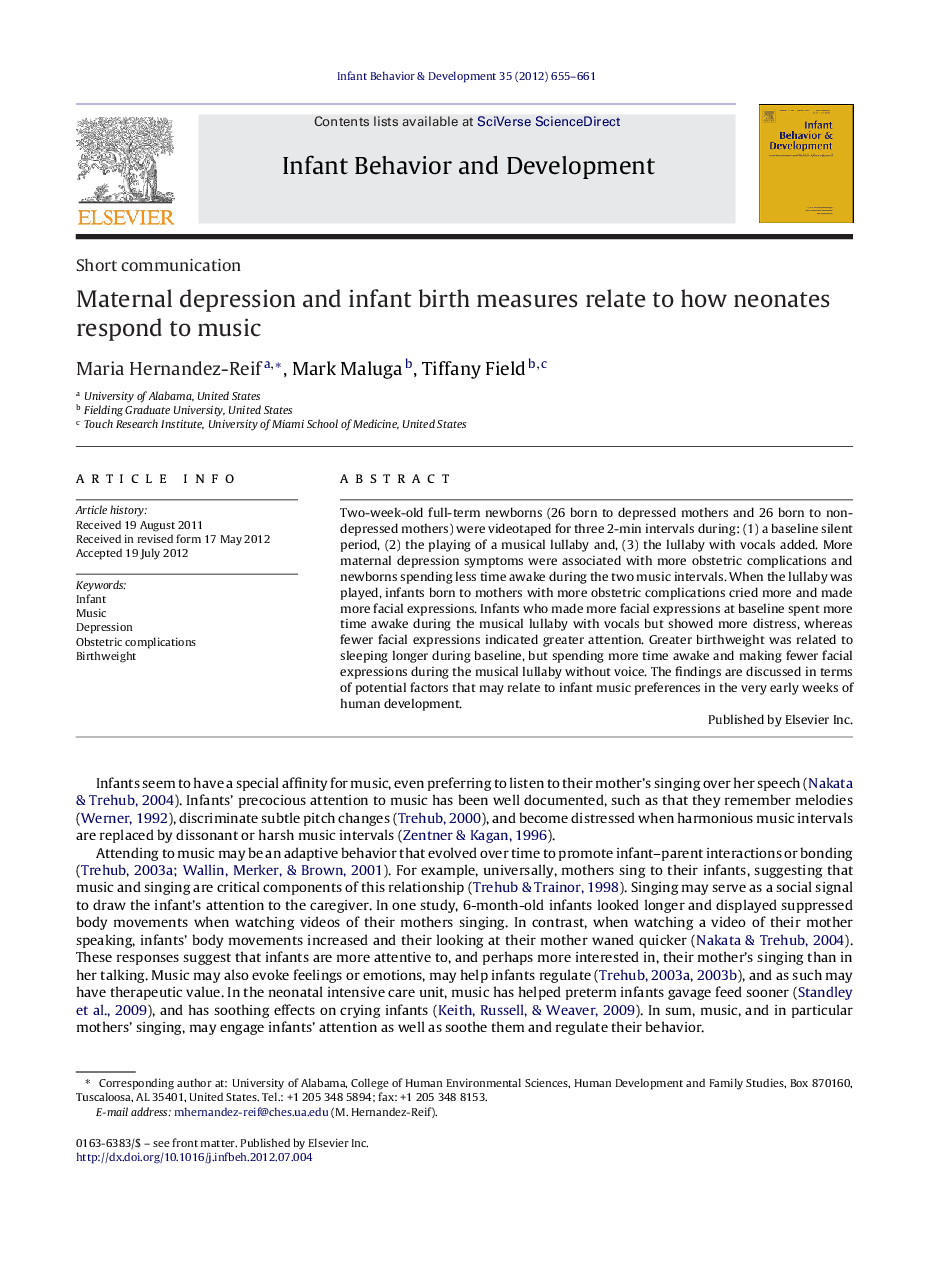| Article ID | Journal | Published Year | Pages | File Type |
|---|---|---|---|---|
| 917349 | Infant Behavior and Development | 2012 | 7 Pages |
Two-week-old full-term newborns (26 born to depressed mothers and 26 born to non-depressed mothers) were videotaped for three 2-min intervals during: (1) a baseline silent period, (2) the playing of a musical lullaby and, (3) the lullaby with vocals added. More maternal depression symptoms were associated with more obstetric complications and newborns spending less time awake during the two music intervals. When the lullaby was played, infants born to mothers with more obstetric complications cried more and made more facial expressions. Infants who made more facial expressions at baseline spent more time awake during the musical lullaby with vocals but showed more distress, whereas fewer facial expressions indicated greater attention. Greater birthweight was related to sleeping longer during baseline, but spending more time awake and making fewer facial expressions during the musical lullaby without voice. The findings are discussed in terms of potential factors that may relate to infant music preferences in the very early weeks of human development.
► We examined neonatal responses to music with versus music without vocals. ► The neonates were born to depressed or non-depressed mothers. ► More maternal depression symptoms were associated with more obstetric complications and newborns spending less time awake during the two music intervals.
